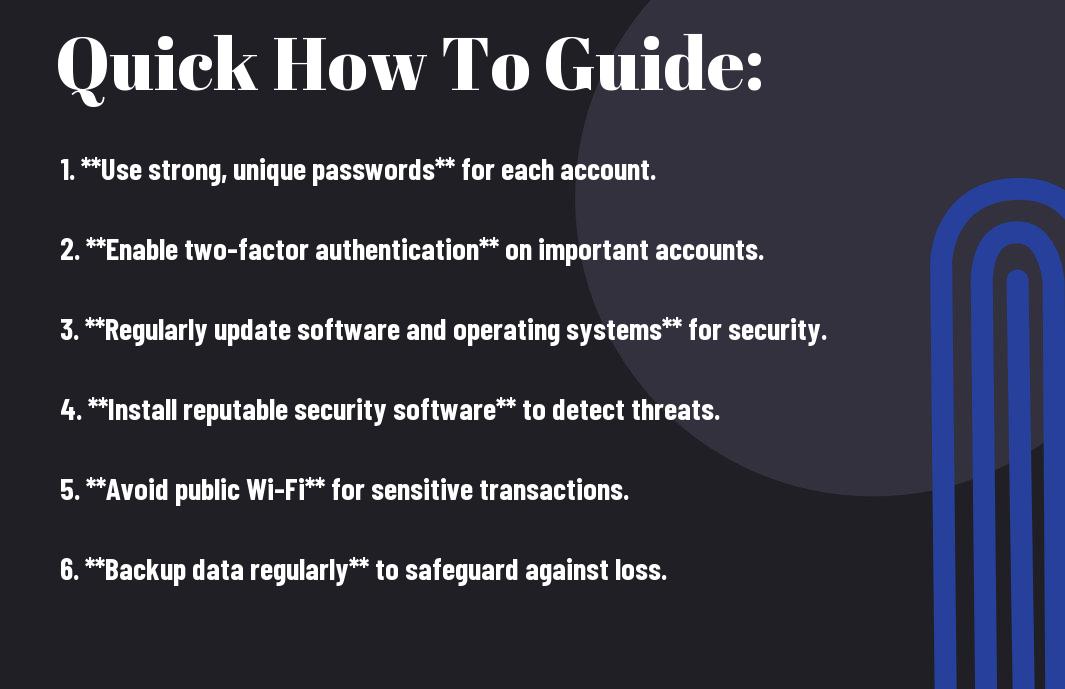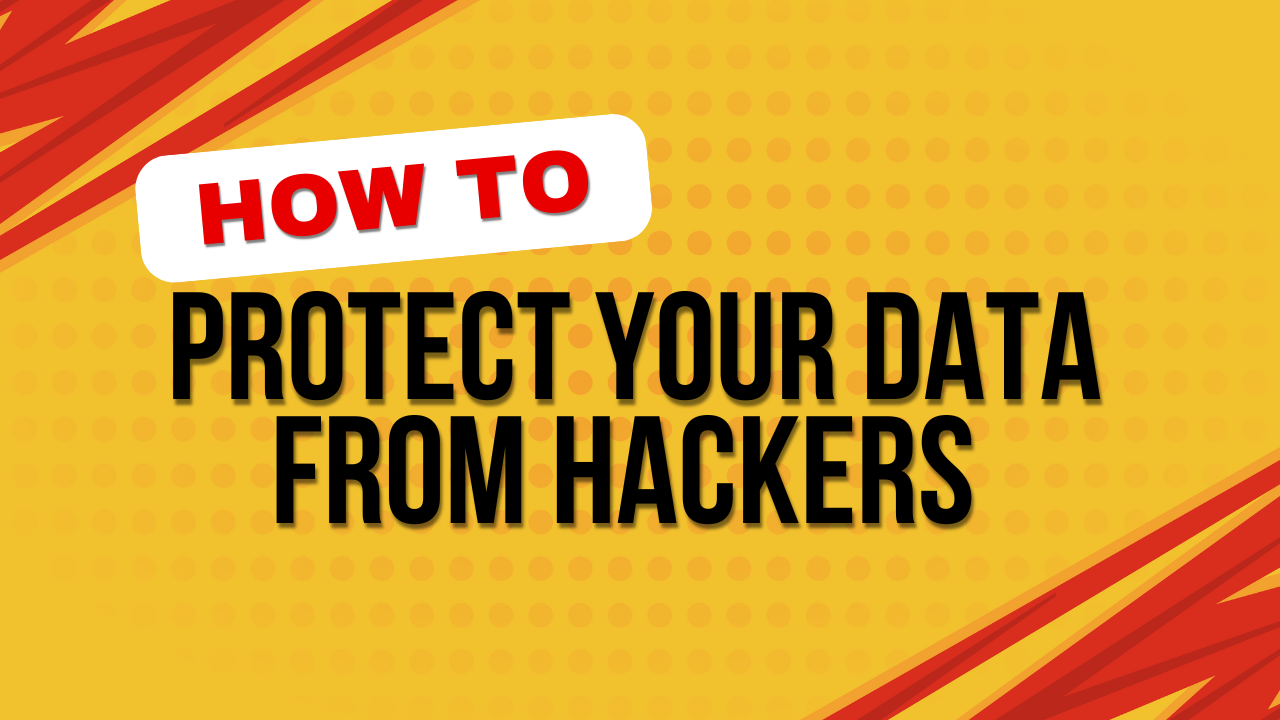How to Protect Your Data from Hackers Hackers are lurking everywhere, and if you’re not careful, they could wreak havoc on your life. I’m here to tell you that protecting your data is not just important—it’s important. You need to take control and put measures in place to ensure your personal information is safe. This post will guide you through practical steps that can help you secure your information and stay one step ahead of cybercriminals. Let’s dive in and fortify your defenses together!
Table of Contents
Understanding the Threat
While we live in an incredibly connected world, it’s crucial to understand the lurking threats that come along with it. Every day, hackers are getting smarter and more sophisticated, using a multitude of techniques to access your data. It’s not just corporations at risk—small businesses and individuals are frequently targeted, and if you think you’re safe, think again. Staying informed about these threats is your first line of defense.
Common Hacking Techniques
Common hacking techniques include phishing, malware, and ransomware, each more alarming than the last. Phishing scams trick you into providing personal information, while malware infiltrates your devices to steal data without you even knowing. Ransomware takes the notion of hacking up a notch by locking you out of your accounts unless you pay a hefty ransom. It’s critical to recognize these threats to safeguard your data.
The Importance of Cybersecurity Awareness
You may underestimate the importance of cybersecurity awareness until it’s too late. In today’s digital landscape, understanding potential risks can make all the difference. It’s not just your data at stake; it’s your identity and financial well-being. By being aware, you can notice red flags and take precautionary measures before something disastrous happens. Ignorance can cost you, so stay informed!
The importance of cybersecurity awareness cannot be overstated. Understanding the various tactics that hackers employ increases your vigilance, allowing you to recognize suspicious emails or links when they come your way. This awareness is your best defense against being exploited. Educating yourself and your community about safe online practices creates a culture of security that benefits everyone. Recall, the more knowledgeable you are, the stronger your defenses will be against cyber threats. Your proactive approach could save you from significant headaches in the long run!

How to Safeguard Your Data
There’s no denying that the digital landscape can be risky, but taking proactive steps to protect your data is key. Let me break down some crucial methods you can harness to make your information safer.
Strong Password Creation
For your passwords to be effective shields against hackers, they need to be strong and unique. I recommend using a mix of uppercase and lowercase letters, numbers, and special characters to create a complex password. Also, avoid easily guessable information like birthdays or names—these are the first to be tried.
Two-Factor Authentication as a Shield
Authentication adds an extra layer of security to your accounts. When you enable two-factor authentication (2FA), you’re not just relying on your password—you’re also required to verify your identity through another method, like a text message or an app notification. This way, even if your password is compromised, your account remains protected.
It’s important to think of two-factor authentication as your digital bodyguard. Sure, it might seem like a hassle to enter an extra code, but that little step can stop hackers in their tracks. It’s like locking your front door and then adding a deadbolt—you wouldn’t skip that, so don’t skip this!
Regular Software Updates
If you want to stay ahead of potential threats, make it a habit to apply regular software updates. These updates often contain important security patches that fix vulnerabilities hackers could exploit. Don’t overlook them; they’re your first line of defense!
A consistent regime of software updates is like going to the gym for your device—it keeps it strong and fit against ever-evolving threats. Missing an update can be like leaving your door wide open; you wouldn’t do that in real life, so treat your digital life with the same respect!
Tips for Secure Internet Usage
Many people overlook important steps for secure internet use. Here are some tips: – Use strong passwords with letters, numbers, and symbols. – Enable two-factor authentication. – Keep software updated to address security risks. – Be cautious with unknown links and attachments. – Install reliable antivirus software. – Limit personal information on social media. These tips can improve your digital safety.
Recognizing Phishing Attempts
Clearly, phishing attempts are one of the most common ways hackers try to gain access to your personal information. These scams usually come in the form of emails, texts, or even phone calls that appear legitimate but are designed to trick you into providing sensitive information like passwords or credit card numbers. It’s crucial to scrutinize any unexpected communication and ensure that its source is reliable before engaging.
Safe Browsing Practices
Usage of secure browsing practices is crucial to protect your data. Always look for websites that start with *HTTPS*, as the ‘S’ indicates a secure connection. Additionally, using *virtual private networks (VPNs)* can help add an extra layer of security when accessing the internet. It’s also wise to avoid entering personal information on sites that don’t seem trustworthy.
Recognizing these safe browsing habits is your first line of defense against potential cyber threats. Make sure to utilize *private browsing modes* when you don’t want to save your browsing history, and avoid saving passwords directly in your web browsers if you can. Opting for a password manager can help keep your passwords secure and prevent unauthorized access.
Avoiding Public Wi-Fi Risks
Practices surrounding public Wi-Fi use are pivotal in keeping your data safe. If you have to connect to public Wi-Fi, avoid accessing sensitive personal information, like bank accounts or emails. Always turn off file sharing and try to connect to a VPN while accessing public networks to keep your data encrypted and secure.
Understanding the risks associated with public Wi-Fi is vital. These networks are often less secure, making them easy targets for hackers looking to intercept your data. When I’m out and about and need to check a few things, I use my mobile data or a reliable VPN service to ensure that I’m protected. It’s about being smart and taking proactive steps!
Key Factors to Consider
After diving deep into the world of data security, it’s vital to keep in mind some key factors to help you protect your sensitive information. Here’s what you should be aware of:
- Strong Passwords – Your first line of defense.
- Two-Factor Authentication – Enhance security with an extra step.
- Regular Software Updates – Keep your devices secure from vulnerabilities.
- Recognizing Phishing Attempts – Stay alert to suspicious emails or messages.
- Secure Wi-Fi Networks – Don’t compromise your data while surfing.
Any of these factors can make a significant difference in your data security journey.
Backing Up Your Data
The best way to secure your sensitive information is to back it up regularly. By duplicating your data in secure locations, you can easily restore it in case of a breach or hardware failure. Make sure to use reputable cloud services or external hard drives to ensure maximum protection.
Using VPNs for Privacy
Privacy is a major concern when it comes to online activities. By utilizing a Virtual Private Network (VPN), you can secure your internet connection and mask your IP address. This keeps your online actions confidential and adds an extra layer of security against potential intruders.
It’s vital to choose a reliable VPN service that encrypts your internet traffic and doesn’t log your activities. This way, you can enjoy surfing, streaming, and sharing your thoughts without unwarranted scrutiny. The right VPN can empower you, especially when using public Wi-Fi networks. How to Protect Your Data from Hackers
Evaluating Third-Party Apps
Consider the apps you download and use daily—some may pose a risk to your data security. Always verify the reputation and reviews of any third-party applications to ensure they protect your information adequately.
Factors to look for include the app’s privacy policy, security features, and how often they receive updates. An app that doesn’t prioritize these areas can expose you to significant risks, making it crucial to pick only trustworthy ones. Don’t underestimate the importance of making informed choices; your data security depends on it!
Summing up
Now, protecting your data from hackers is non-negotiable in our digital world. I can’t stress enough the importance of strong passwords, two-factor authentication, and regular updates. You need to be proactive, stay informed, and make cybersecurity part of your daily routine. Your data is your asset, and I want you to treat it like gold. Note, it’s all about being steps ahead to outsmart the bad guys. So, take charge of your online security today, because in this game, you either adapt or get left behind. Stay vigilant and hustle hard!

